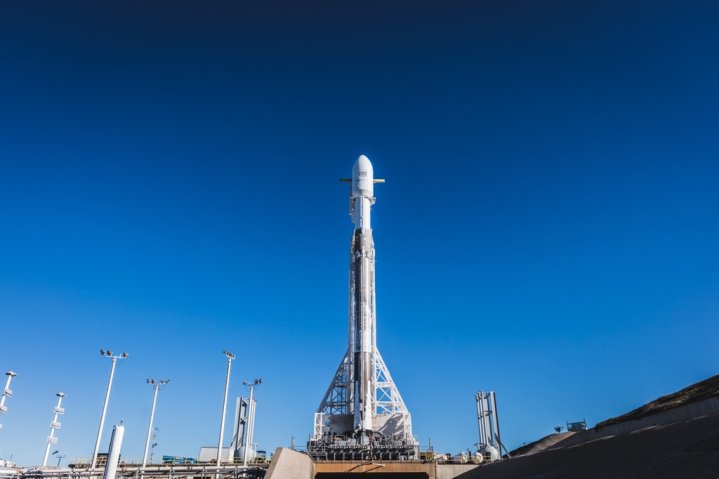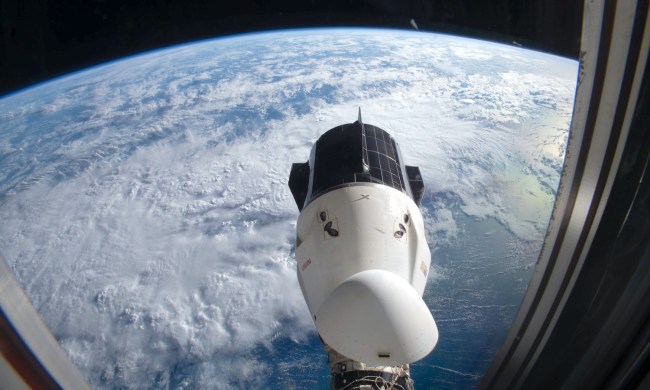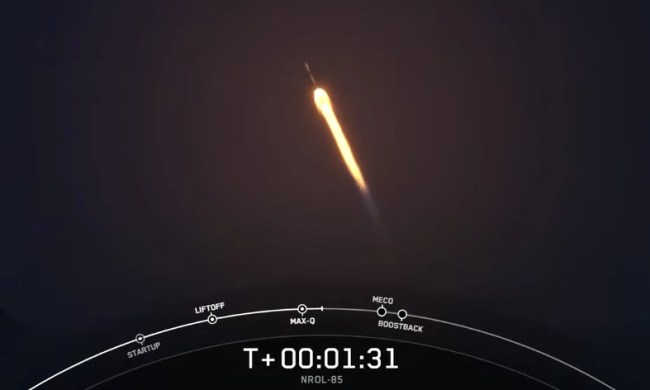
The fifth and final version of the Falcon 9 rocket has successfully launched and landed. The highly anticipated event suffered a last-minute delay on May 10, but just about 24 hours later, the rocket successfully took the skies, carrying Bangladesh’s very first satellite, the Bangabandhu-1. This satellite will go into Geostationary Transfer Orbit, and should provide broadcast and communications services to folks in Bangladesh. SpaceX is no stranger to launching satellites, having previously helped the Turkmenistan’s TurkmenAlem satellite into space in April 2015, and Bulgaria’s Bulgariasat-1 last June.
However, this is the first time that an enhanced version of the Falcon 9 rocket, known as “Block 5,” has flown. Heralded as the most advanced iteration of the rocket yet, this ought to be SpaceX’s final version — most impressively, the Block 5 should allow SpaceX to complete more than two flights with the same Falcon 9 booster, which could help cut down on costs, as well as the time required between launches.
“Block 5 is capable of at least 100 flights before being retired,” Musk told reporters on a prelaunch conference call. He added that the Block 5 rockets should be able to launch at least 10 times before needing any major work. Eventually, SpaceX is slated to have “30 to 50” of these rockets in its fleets, though the final number “totally depends” on how many “customers insist on launching a new rocket.”
While few details about the Block 5 are available as of yet, Musk says that the rocket has more powerful engines, hardier hardware, less weight, and a more reproducible structure. But even without the Block 5, SpaceX is already slated to have an extremely productive year, with 30 launches on deck for 2018.
Ultimately, the Block 5 will be the rocket SpaceX depends upon to send humans to the International Space Station. And given this precious cargo, Musk noted that the team had to be especially particular about this spacecraft. “There are thousands and thousands and thousands of requirements,” Musk said of the rocket.
Although this maiden voyage was a success, don’t expect to see this particular Block 5 go back into space anytime soon. “Ironically, we need to take it apart to confirm that it does not need to be taken apart,” Musk said. That means that this rocket probably won’t return to the skies for another couple months.


